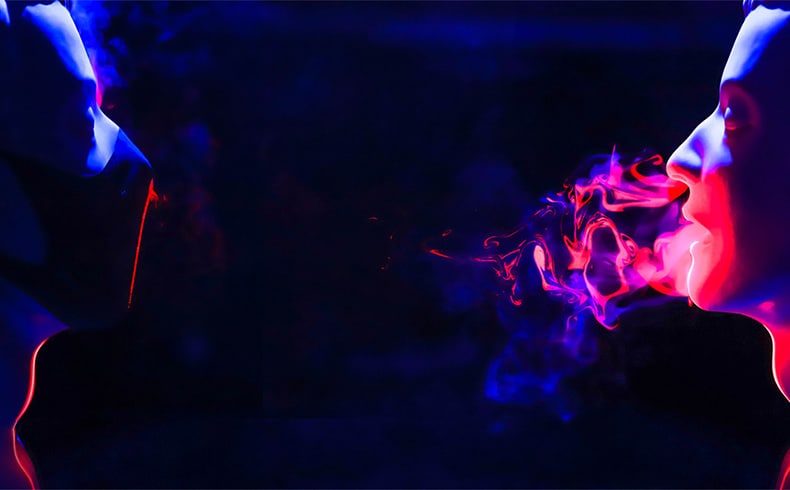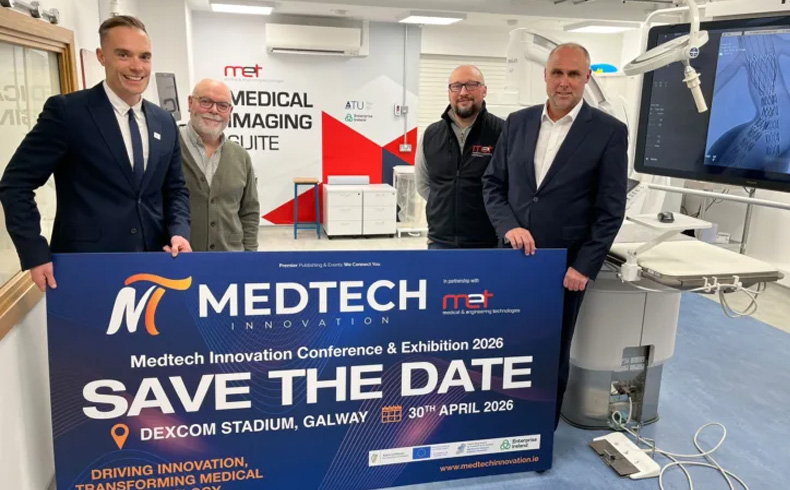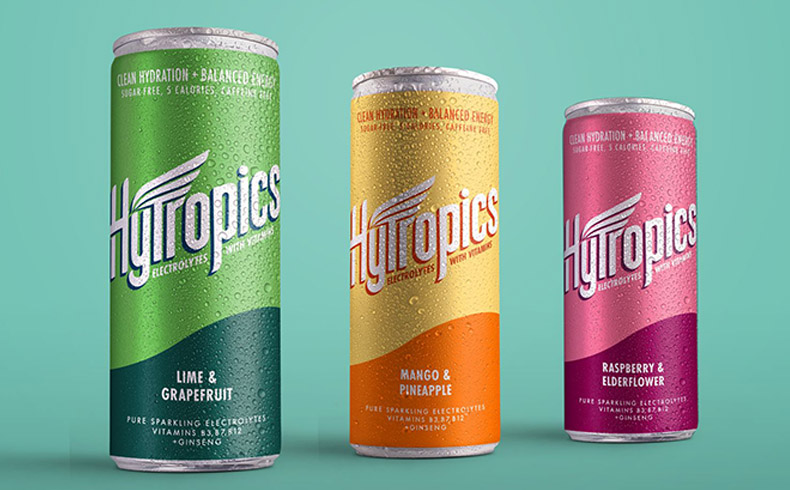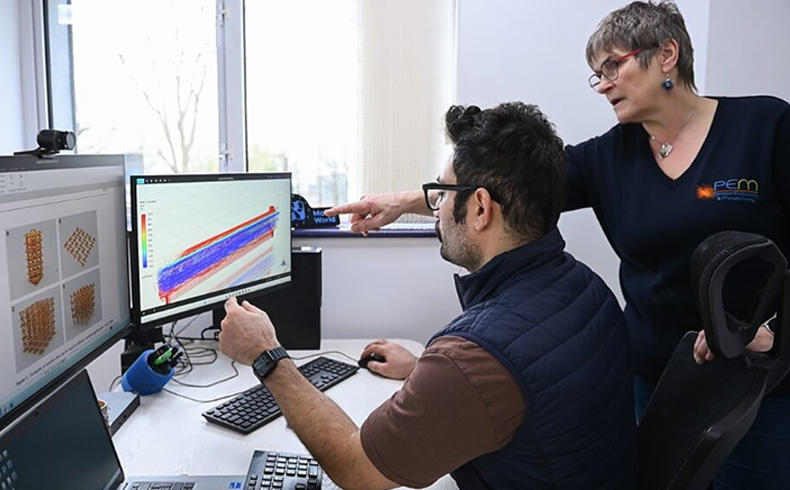Cork Institute of Technology is delighted to announce it has won the Science Foundation Ireland (SFI) Research Image of the year award for 2020. The winners of the prestigious Science Foundation Ireland Awards were revealed today at the annual SFI Science Summit. The research image competition celebrates images captured by Science Foundation Ireland funded researchers during the course of their research. The winning image was titled “Talking Heads” and was taken as part of the SFI funded project titled MASK which focuses on Making Aerosol Safety Known. CAPPA Researchers Dr Krishnakumar Chullipalliyalil and Dr Steven Darby along with Danielle Wilcox from Blackrock Castle Observatory took this image during their work on the Making Aerosol Safety Known Project.
The image above shows a red laser sheet illuminates the particles emitted from a medical dummy head. The red sheet is aimed at the dummy’s nose. We can clearly see the difference between a mask and no mask.
CIT received funding from SFI for research into barrier masks to tackle the ongoing COVID-19 pandemic. The aim of the project is to quantitatively determine how well commonly available face – mask materials supress the transmission of exhaled droplets. Given that the reproduction rate of COVID-19 is linearly related to both the efficacy of a mask and the percentage of a population wearing masks, a small change in either makes a large change in disease transmission rates. It is therefore critical that large-scale mask usage, will involve optimally suppressive materials that are comfortable to wear for extended periods, can be produced in large quantities and are re-usable and inexpensive. Importantly such masks will not negatively affect medical supplies.
The project will use imaging techniques to directly measure the range of droplet sizes that penetrate the materials under examination. This direct imaging approach improves upon many other studies and is capable of single – droplet detection and sizing from at least the five-micron threshold level and with no physiologically significant upper threshold. The project approach will measure the brightness of each droplet exhaled by participants through face masks composed of different materials as they pass through a light curtain generated by a laser. Using high-speed photon-counting imagers and a photometry reduction pipeline, previously developed for an astrophysics context, the team will be able to deal with overlapping and non-spherical point sources and extend the dynamic range of brightness’s which can be analysed. By repeating the experiment for different materials, we will rapidly obtain an accurate estimate of the differential absorption of these materials as a function of droplet volume.
This research involves a multidisciplinary approach and brings together researchers from a variety of research departments in Cork Institute of Technology including the Centre for Advanced Photonics and Process Analysis (CAPPA), Blackrock Castle Observatory (BCO), BioExplore Research Centre and the MeSSO research group.
You can learn more about the research CAPPA has conducted around COVID – 19 here or you can contact CAPPA directly here for more information.
This article was first posted on the CAPPA website.



